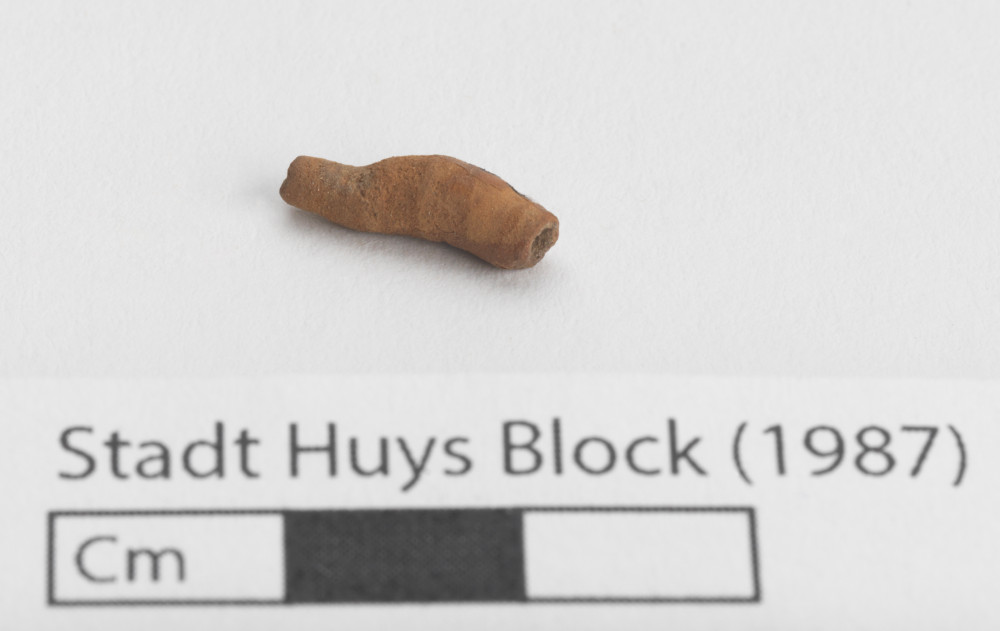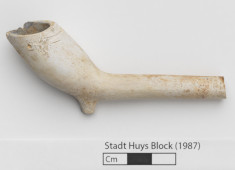Introduction: People have occupied and modified Lot 16 – a small parcel of land that once fronted Pearl Street – for a long time. However, only two buildings are on record as having been built on the Lot in the past 400 years. The earliest Colonial building was constructed sometime between 1660-1672 and the latest historic building in 1870. In addition, walls, outbuildings, and other structures were installed over the life of the Lot. Each building episode leaves below-ground traces for archaeologists to find. The history of a site can then be pieced together by "reading" the layers beneath the earth's surface (also known as stratigraphy) and analyzing its artifacts. One of the main tasks for the archaeologists on the Stadt Huys project was to determine what, if any, historical remains still existed beneath the modern ground surface.
Rationale: Lot 16 is a small area to the north of Lots 8 and 9. The lot was mostly residential from 1660 until 1835. The last structure was built on the lot in ca. 1870. Project archaeologists excavated Test Cut AF to see if the remains of earlier structures or floors were present in the middle of Lot 16 and north of a stone wall diagonally bisecting the lot.
Results: This level is part of what remains of a late-17th-century deposit that was significantly altered during the 19th-century construction of the stone walls demarcating Lot 16. The deposit was found only in Test Cuts AF and U and measured around 22-inches thick.
Lot 16, Test Cut AF, Stratum IV, Level D
-
Collection method
Shovel, Trowel, Screen (1/4-inch mesh). Arbitrary 4-inch Level.
-
Soil description
Disturbed Brown and Tan Sandy Clay Mixed with a Light Grayish Brown Clay
-
Munsell
10YR 5/6, 10YR 4/2



